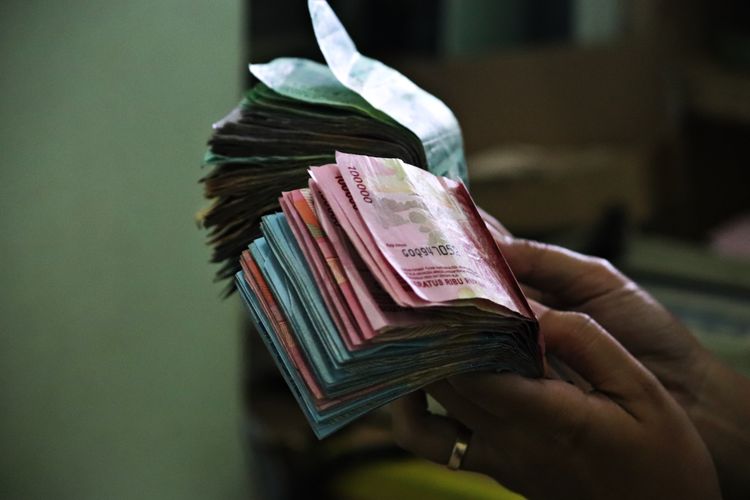The white coats will try to sneak into a mousehole of the news. While the war in Ukraine haunts our screens and our days, the Fédération hospitalière de France (FHF), the voice of public hospitals and retirement homes, is joining forces with 55 organizations from the health and medico-social sector in order to put health issues at the heart of the campaign. All invite the candidates for the presidential election to a great oral on this theme to be held Thursday in Paris. At the end of each performance, journalist Élizabeth Martichoux will invite them to specify their programs on LCI.
This is the first time that such a happening bringing together actors from the public and liberal sectors, with often divergent interests, has taken place. We could see there the extension of the sacred union born during the pandemic. But it is rather the sign of a collective sense of urgency, the awareness that the sanitary building built after 1945 is no longer suitable for an aging population.
Medical deserts advance
Thursday, the FHF will present the results of a survey commissioned from the Ifop institute. This vast study suggests that the malaise expressed by so many caregivers for more than a decade has found an echo. Thus, 76% of French people questioned believe that the health system is “weakened” Where ” in distress “. A finding shared by 86% of health professionals, according to a second Ifop study conducted with a sample of 601 of them. “Everyone knows that if the hospitals held out during the Covid, it was thanks to the heroism of their agents”notes Frédéric Dabi, director general of the polling institute.
Read also – Sixth wave of Covid-19: why we didn’t see it coming
The French have in mind three of the main weaknesses of the health and social liner: the shortage of carers worries 91% of them, as does the difficulty of supporting elderly people in a situation of dependency (90% of those questioned) and the situation of public hospitals (89% of respondents). “These numbers are staggering”points out Frédéric Dabi. “The demographic wall is really the major problem, echoed Frédéric Valletoux, president of the FHF. It’s a vicious circle: the pressure is such that people give up, but the greater the pressure, the more people give up. »
Worry is rooted in everyday life. In a country long plagued by a guillotine numerus clausus, by a culture hostile to the regulation of the installation of liberals and the delegation of tasks to other health professionals, the medical deserts are advancing. This is true in rural areas, but also in the center and on the outskirts of large cities. And this probably explains why four out of ten French people have already had to give up a medical consultation because they could not find a health professional.
What a finding “anxiogenic and convergent”, in the words of the director of Ifop, is not new. In the fall of 2017, Agnès Buzyn, then Minister of Health, did not say anything else in an interview with the JDD. At the time of the launch of the My health 2022 plan, Emmanuel Macron also painted a very bleak picture. And if the Covid-19 gave birth to the Ségur de la santé and its revaluation of treatments for certain professionals, the loss of meaning at work for many nurses is an old story. Just like the heaviness of budgetary constraints, the limits of hospital governance and fee-for-service pricing. “Doctor Macron made a good diagnosis on the patient health system, estimates the former hospital psychiatrist Daniel Zagury. Now he will have to be treated. »
Global Disenchantment
The French have a very clear order for this for presidential candidates: for 89% of them, health professionals must be recruited, and for 82%, caregivers must be better paid. The respondents are mostly in favor of measures to regulate the installation of liberals, as there are for pharmacies, and the return of the duty of care for general practitioners. Counterintuitively, 74% of health professionals – there are many non-doctors among them – also support this return to the past. The result confirms Frédéric Valletoux: “To manage the medical shortage, we must change the period and review the balance between the rights and responsibilities of each, better share the tasks between the public and the private sector, shake up conservatism. »
Who among the candidates could be able to carry out a structural reform of the health system? 31% of respondents trust Marine Le Pen to meet this challenge. The score of the candidate for the National Rally, who, according to Frédéric Dabi, “carries out a proximity campaign and often targets women”, is certainly higher than that of outgoing President Emmanuel Macron (29% confidence) or Jean-Luc Mélenchon (25% confidence). But it is far from being the majority. “This global disenchantment is the major fact of our study, points out Frédéric Dabi. It shows that the central subject of health is insufficiently addressed by the candidates. »
Rather than a providential woman or man, the French seem to dream of a democratic forum on health issues. “Nine out of ten want a major national debate, not vertical, comments Frédéric Dabi. We are no longer in a logic of patch but of extrapolation. » The proof ? A third of respondents would be ready to pay more taxes or social security contributions to finance the reform they are calling for.
–


